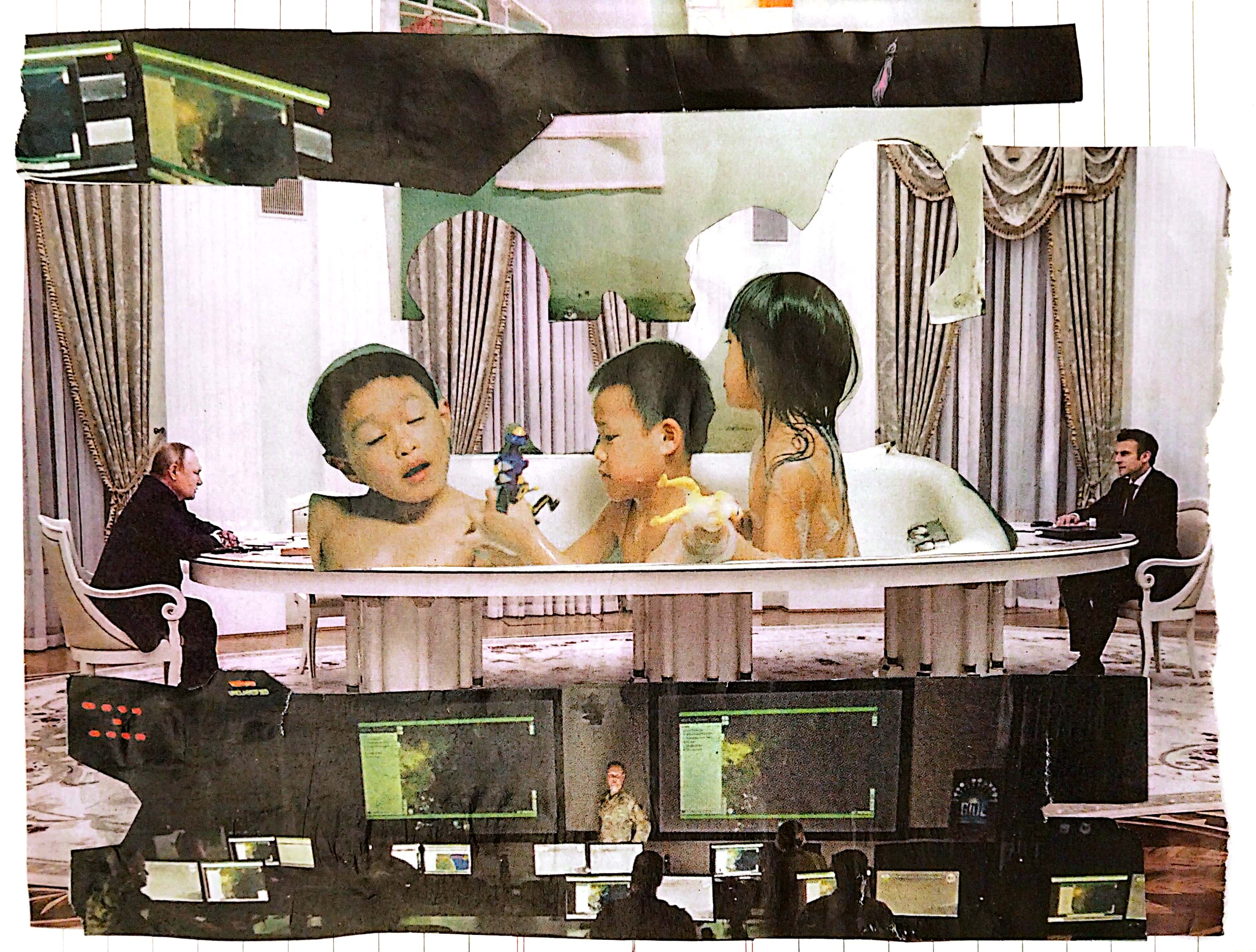

When I was a kid, it was customary at home to park what we were doing at eight o'clock in the afternoon, assemble the TV and watch the ETB1 news. At first, I was very irritated by those unjust changes in the night chain, and I was asking my parents how it was possible that, being Violetta and Winx Club at Disney Channel, they wanted to hear news, they didn't get tired of a speaker's boring speech with complicated words. My parents told me to close my mouth and let me hear the headlines.
They say television is nothing more than entertainment and pleasure, but as they understood what was being told in that boring program, it became for me also a showcase for the evils of the world. In the newsletter of the eight, I heard for the first time words like crisis or cancer, and in the same way I realized that the presenter was talking about Olentzero in a weird tone, as if he was lying. I also saw war for the first time in the news: bombs, tanks and people crying.
I remember that in my life of then, in my perfect appearance, that look of suffering from others, the televised war had been a great contradiction. Doubts often rob me of the dream: Why does a war arise? What is it for? Where? When? How? To whom to kill? Who to whom? To whom? Too many questions and a strange feeling of restlessness in the body.
In any case, before I begin to lecture someone on how the world works, I would like to focus on the feeling of discomfort and, in particular, on their absence. The screens have been bombarded by war, misery and genocide as accurately as they have bombarded cities in recent years. Back are the informative ones. “Take,” we have been told: “Here’s a massacre on an Instagram reel that doesn’t come to the minute.” In the Aquarium we've seen how fish look at the strongest expressions of human behavior, with an idiot face, and we no longer know what the thickest glass of the human has, what it has of our own.
A constant erosion of consciousness until we forget that their struggles are also ours. Banalization concealed under the pretext of information, and there was no trace of such a sudden sense of unease.
That is what bothers me the most: the normalization of everything that should draw our attention to us, the cancellation of the tragedy before our eyes. As a child, I felt a real fear and a real burden of awareness to the news, but now it seems that we have to look at our own bowels in search of the last symptom of empathy that remains for us. And attention, it's not my particular problem or yours: we've been very hard to suffer for others and therefore fight.
I think this column is nothing more than a call to resistance, a plea to ourselves, and above all to mine, to realize that behind this virtual imaginary there is a bone and a flesh, it is not a film, and above all, it is worth trying to change things.
Let doubt rob you of your dream from time to time.